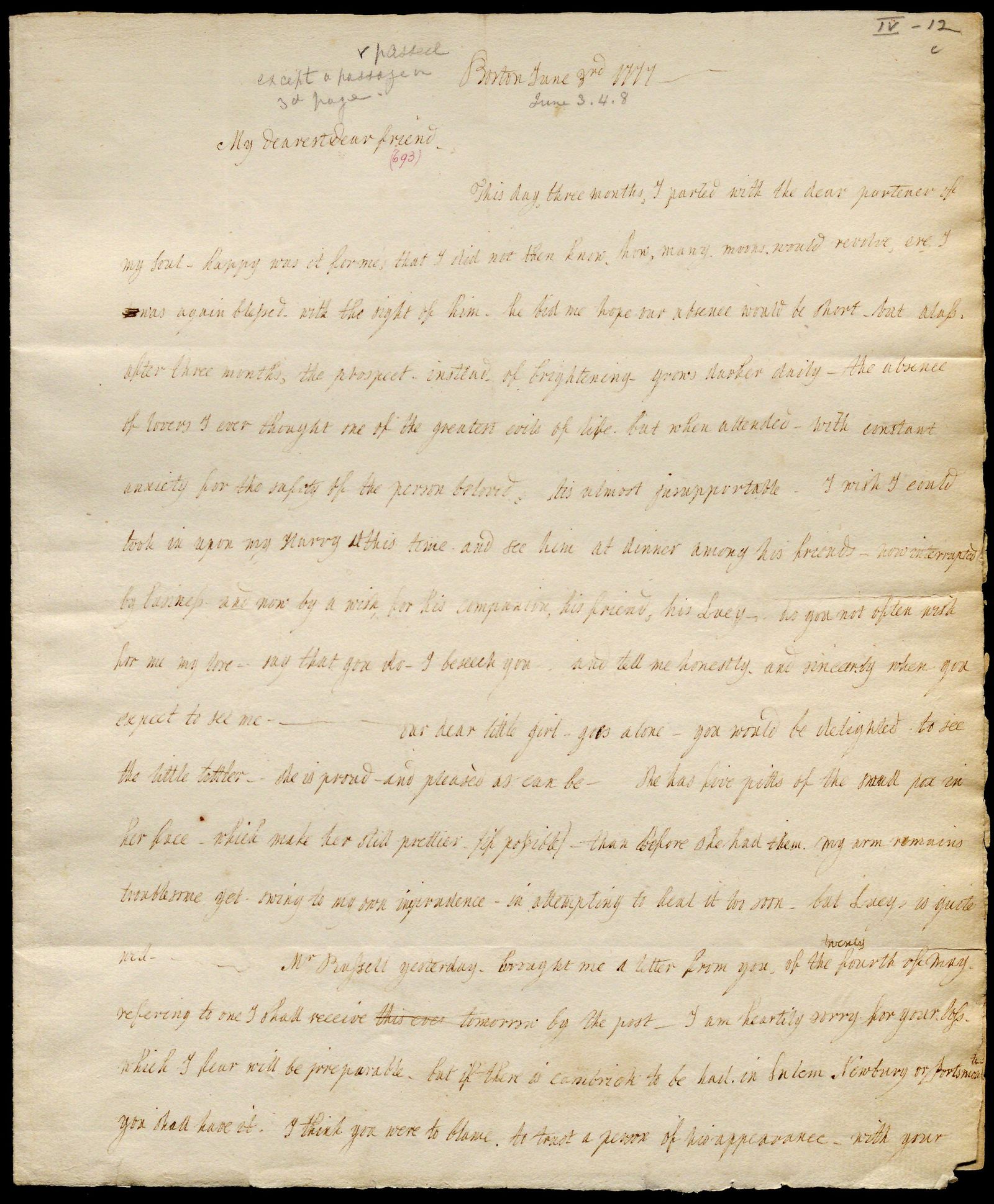
A larger version of this object is available to teachers and students for free. Others can subscribe for $25/year.
Larger images are also available to schools and libraries via subscription to American History, 1493-1943. Check to see if your school or library already has a subscription or click here for more information.
- GLC#
- GLC02437.10452-View header record
- Type
- Letters
- Date
- 3-8 June 1777
- Author/Creator
- Knox, Lucy Flucker, 1756-1824
- Title
- to Henry Knox
- Place Written
- Boston, Massachusetts
- Pagination
- 4 p. : address : docket ; Height: 30 cm, Width: 29.3 cm
- Primary time period
- American Revolution, 1763-1783
- Sub-Era
- The War for Independence
Laments Henry's absence, noting he has been gone for three months exactly. Relates that their daughter, Lucy, is well and beautiful despite "five pitts of the small pox in her face." Comments on Henry's loss, possibly of clothes, noting that she will attempt to procure more cambric (a cotton fabric) for him. Mentions the sale of Knox's horses. Relates that she wanted to sell them separately, but Knox's brother William did not wish to do so. Remarks, "...you had better make me your future agent- I'll assure you I am quite a woman of business." Begins writing again 4 June. Plans to send Knox madeira, "good old spirit," and sugar. Requests that Knox ask General Benedict Arnold what she should do with some things Arnold left with her. Mentions a scarf among the items. Notes that Catharine Greene (General Nathanael Greene's wife) would also like one of the items. Begins writing again 5 June. Criticizes Henry for his cold correspondence. Defends herself, arguing that it is William's responsibility, not hers, to inform Knox of his well-being.
Citation Guidelines for Online Resources
- Copyright Notice
- The copyright law of the United States (title 17, United States Code) governs the making of photocopies or other reproductions of copyrighted material. Under certain conditions specified in the law, libraries and archives are authorized to furnish a photocopy or other reproduction. One of these specific conditions is that the photocopy or reproduction is not to be “used for any purpose other than private study, scholarship, or research.” If a user makes a request for, or later uses, a photocopy or reproduction for purposes in excess of “fair use,” that user may be liable for copyright infringement. This institution reserves the right to refuse to accept a copying order if, in its judgment, fulfillment of the order would involve violation of copyright law.